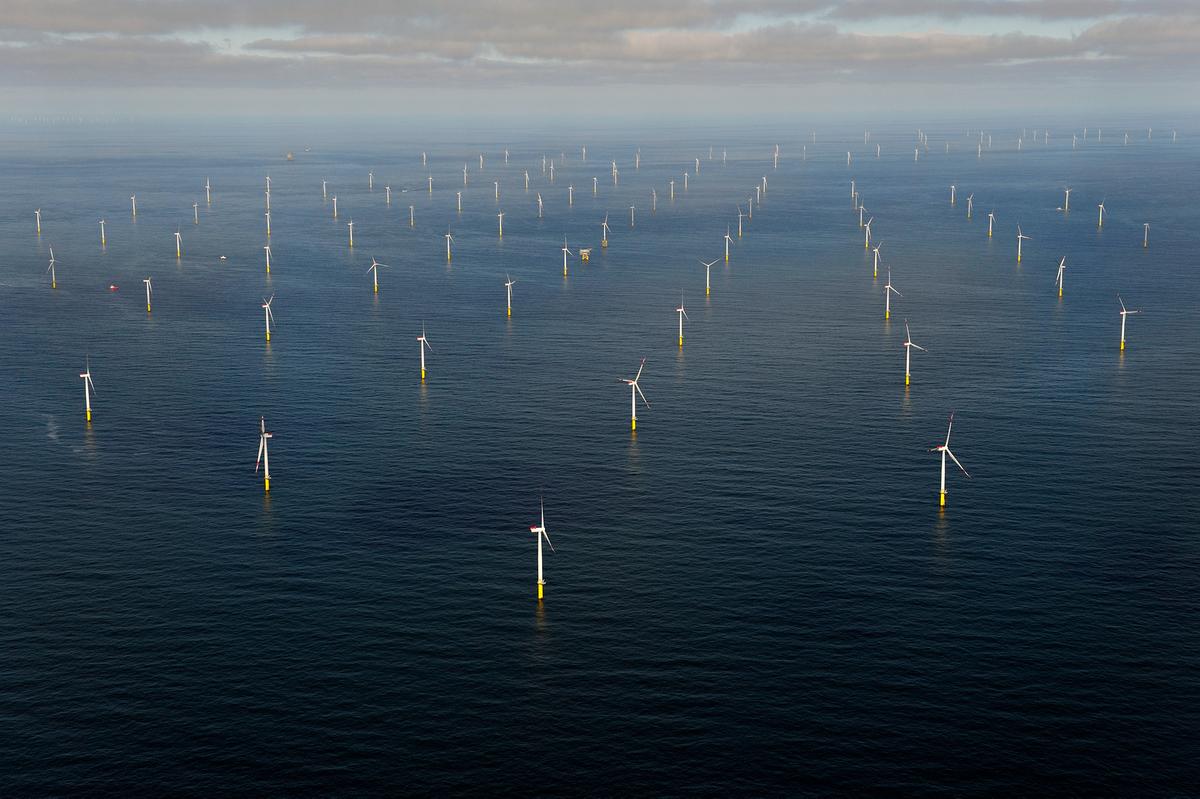Granting Ofgem full legal powers to implement Britain’s Net Zero goals is among much needed steps to speed up connections for marine wind farms & decarbonise the nation’s grid, the government’s independent offshore wind champion has warned ministers.
Energy lawyer Tim Pick echoes recent calls from Whitehall advisors including Chris Skidmore that grid access and upgrades are the single most important limiting factor impeding progress towards government’s desired quadrupling of offshore turbines to 50GW by 2030.
Britain should opt for a ‘wartime footing’, Pick urges ministers, in bringing forward steps to accelerate widespread electrification of existing industrial & domestic heat, light and mobility, and removing drains on investors’ confidence.
Leading off his report, Pick highlights the comment of one European offshore developer:
”If you take just one message from this report, it should be the urgent need to upgrade our national grid for a world of high renewables penetration, and widespread electrification of homes and businesses. Grid connections are increasingly becoming the rate-limiting factor for our Offshore Wind deployment”.
Following his appointment by former premier Johnson, the lawyer’s recommendations come after ten months of conversations with developers, investors, and generating companies. With junior energy minister Lord Cullinane, Pick co-chaired D-ESNZ’s offshore wind acceleration taskforce.
For every 1GW in Britain’s current pipeline of marine farms, a delay of one year would imply 1.5 million tonnes of CO2 if capacity was otherwise met instead by gas generation, Pick says, citing government figures.
Critical to achieving progress, Pick recommends: “Ofgem’s mandate needs updating, to give proper weight to the legally binding Net Zero by 2050 commitment, as well as interim policy waypoints such as the objective to have a decarbonised power system by 2035.”
Securing such goals requires finalising planning and environmental reforms already in proposed legislation such government in its the Energy Security Bill, in the Levelling Up and Regeneration Bill, and in NSIP Action Plan, Pick urges.
The offshore wind industry welcomed the independent advisor’s insights. For RenewablesUK Cymru, director Jessica Hooper said: “We fully support Mr Pick’s recommendations. He has highlighted several key issues, such as lack of grid availability, investment into ports and the need to move fast to seize first-mover advantage.
“Although many of the issues he raises will be matters for UK Government to implement, we will be speaking to Welsh Government to see what this means for Wales, and how we can work together to ensure Wales fully benefits from the opportunities offshore wind presents.
Energy secretary Grant Shapps publically thanked Pick, and highlighted his recommendations.
“The private sector will be critical in accelerating the deployment of offshore wind”, Shapps told the advisor “Government and industry will need to work closely together to realise its full potential. In this report you have offered a positive vision for how this can be done through the reinvigoration of the Offshore Wind Industry Council”.





It’s good that at least one renewable industry, offshore wind, is pushing this problem up the political debate, but the problem also applies to PV arrays, ocean current turbines and new nuclear power. At present the UK’s electrical generation is only around 18% of our primary energy demand of around 2,000 TWh a year, according to the FES of the National Grid, when it is probably that by 2050, if the UK is to stop the net emissions of fossil carbon by then, most of our primary energy will be delivered as electricity with the rest from geothermal and some air heat. While FES predicts that our primary energy will fall to around 1,600 TWh a year due to more efficient machines and better insulation, allowing for the energy from geothermal and air, ramping up our grid from 18% to around 60% electricity supply is a massive task, when such infrastructure upgrades don’t get votes.